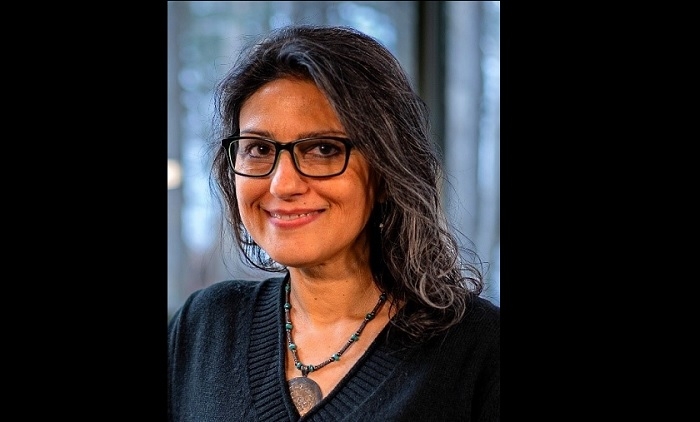DR. NEGRÓN-GONZALES TO GULAN: we should be realistic about the time and effort required to cultivate all the dimensions of good governance

Dr. Negrón-Gonzales has taught at UNH since fall 2008 and teaches courses on global studies and comparative politics. She is the Chair of the Department of Security Studies and the Founding Program Director of the Global Conflict and Human Security master's program. Her research covers social movements and civil society, counter-terrorism and human rights, international norms that promote human security (especially the responsibility to protect/R2P), and Turkish and Middle East politics. Her latest research explores the tension between counter-terrorism and human rights and analyzes the ways civil society organizations in Turkey have attempted to promote human rights and hold state officials accountable for gross human rights violations during armed conflict. Dr. Negrón-Gonzales was a Fulbright Scholar (Turkey, 2006-7). She received UNHM's Faculty Excellence in Teaching award in 2013 and a Silver UNH Sustainability Award in 2021. She serves on the Board of Directors of the World Affairs Council of New Hampshire. And she answered a question of our Magazine about good governance like the following:
Gulan: How can a “good governance" approach serves as a useful strategy for dealing with the problems associated with extremism and violence, particularly in relation to the Middle East?
Dr. Negrón-Gonzales: Governments across the Middle East and North Africa region have failed to deliver effective governance, fueling mass discontent and extremism. Improving governance can reduce the fertile ground on which extremism thrives. A "good governance" approach is not a panacea but can be a powerful tool for mitigating violent extremism and instability. It is important to note that governance is incredibly complex and multi-faceted and there is not a universally accepted definition of good governance. According to the United Nations, “good governance is participatory, consensus oriented, accountable, transparent, responsive, effective and efficient, equitable and inclusive, and follows the rule of law.”
A good governance approach may reduce violent extremism by addressing underlying grievances, promoting inclusivity, rule of law and accountability, ensuring effective public service delivery, and facilitating dialogue and conflict resolution. By meeting the needs of the population, governments can build trust and legitimacy, undercutting the appeal of extremist groups. When institutions are transparent, fair, and accountable, it reduces the likelihood of individuals resorting to violence as a means of seeking justice or redress for grievances. Inclusivity and participation can help reduce feelings of disenfranchisement, making it less likely for individuals to turn to extremism as a form of protest or rebellion.
However, we should be realistic about the time and effort required to cultivate all the dimensions of good governance. To illustrate the complexity, let’s focus on security sector reform (SSR). We know that corruption and human rights abuse by security officials are major drivers of extremism in MENA and beyond; hence, a key task is to improve security sector governance. SSR typically involves reforms of institutions responsible for ensuring security, including the military, police, intelligence agencies, judiciary, and other law enforcement bodies. The process of security sector reform typically involves a range of activities, including legislative and policy reforms, institutional restructuring, capacity-building programs, training and professionalization of security personnel, community engagement, and efforts to boost the representation of marginalized groups in security institutions. These efforts should help to prevent abuses of power, corruption, and human rights violations. This will in turn help governments counter the narrative of extremist groups that portray themselves as the only alternative to injustice.
All of this, of course, assumes there are institutionally developed security institutions to reform. That is not necessarily the case in fragile and conflict affected states, such as Yemen. Moreover, even efforts aimed at capacity building in countries with more developed institutional infrastructure have not produced the anticipated results. Iraq is a case in point. In addition, many have argued that conventional top-down SSR focused on state armies must be complemented by a more decentralized approach that includes local security groups and community engagement. And even when there is political will for passing SSR legislation to rein in military and police, there is often a culture of impunity for security officers that prevents the full implementation of reforms to improve accountability.
Furthermore, the proliferation of non-state armed groups in the region significantly complicates SSR. Must conflict be resolved before SSR can be achieved or is SSR a tool for resolving conflict? How should para-state militias, such as those in Iraq, be dealt with? What will become of the Syrian Democratic Forces after American forces leave Syria? What will become of Libya’s armed groups? For many MENA countries like these, SSR must be accompanied by the disarmament, demobilization, and reintegration (DDR) of non-state combatants. This is often highly controversial and may be politically destabilizing, and it takes time.
However, despite the challenges associated with DDR and SSR, they are central to cultivating good governance. DDR and SSR are complementary processes that address different aspects of post-conflict recovery and peacebuilding. By disarming former combatants, reintegrating them into civilian life, and reforming security institutions, DDR and SSR together contribute to building a more peaceful, stable, and resilient society.















